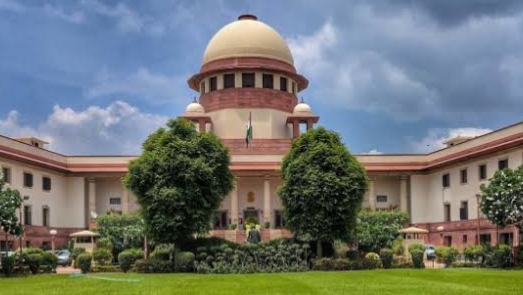Anushri Joshi
In a significant ruling, the Supreme Court has expressed its unequivocal disapproval of certain sweeping remarks made by the Allahabad High Court, wherein it had surmised that if religious conversions at social congregations were not curtailed, the majority population in India might one day become a minority. The apex court deemed these observations as irrelevant to the adjudication of the matter at hand and directed that they should not be relied upon in any future proceedings.
The Division Bench comprising Chief Justice of India D.Y. Chandrachud and Justice Manoj Misra determinedly affirmed that “the general observations made by the High Court had no bearing on the facts of the present case and were ,therefore, not required for the disposal of the case.” It further held that such remarks shall not be cited in any other case or proceeding, either before the High Court or any other judicial forum.
The case before the Supreme Court arose from an appeal against the Allahabad High Court’s July 1, 2024, decision to deny bail to the petitioner, Kailash, who was accused under the Uttar Pradesh Prohibition of Unlawful Conversion of Religion Act, 2021. The petitioner had allegedly taken a group of villagers to a social gathering in Delhi, purportedly intending to convert them to Christianity.
In its ruling, the High Court, presided over by Justice Rohit Ranjan Agarwal, observed a broader demographic concern, opining that “if this process is allowed to be carried out, the majority population of this country would be in minority one day, and such religious congregations should be immediately stopped where the conversion is taking place and changing religion of citizen of India.” Justice Agarwal correspondingly stated that Article 25 of the Constitution of India provides for “freedom of conscience and free profession, practice, and propagation of religion” but does not provide for conversion from one faith to another. He added, “The word ‘propagation’ means to promote, but it does not mean to convert any person from his religion to another religion.”
The apex court, however, took strong exception to these remarks. It stressed that such generalized and conjectural comments had no factual nexus to the issue of bail and were extraneous to the determination of the appellant’s personal liberty. By excising these remarks, the Supreme Court reaffirmed that judicial pronouncements must remain firmly anchored to the factual matrix of the case and must not digress into speculative discourse.
The Supreme Court granted interim bail to Kailash, considering that he had been in judicial custody since May 21, 2023. Subsequently, the Court confirmed the interim bail in its final order, emphasizing the importance of individual liberty under Article 21 of the Constitution of India and the necessity of proportionality in pre-trial detention.
The Supreme Court’s ruling serves as a potent reminder that while judicial commentary can, at times, delve into broader societal concerns, such observations must always remain germane to the facts of the case. The bench’s decision underscores the principle that liberty cannot be sacrificed at the altar of speculative future concerns about religious demographics, especially in the absence of concrete evidence.
Senior Advocate Siddharth Aggarwal appeared for the petitioner, contesting the High Court’s denial of bail and challenging the propriety of its remarks. Additional Advocate General Garima Prashad represented the State of Uttar Pradesh, defending the invocation of the U P -Conversion Law and supporting the High Court’s refusal to grant bail.
Case Name: Kailash vs. State of Uttar Pradesh
Case Number: SLP (Crl.) No. 11258 of 2024
Bench: Chief Justice D.Y. Chandrachud and Justice Manoj Misra
Click here to access the order

